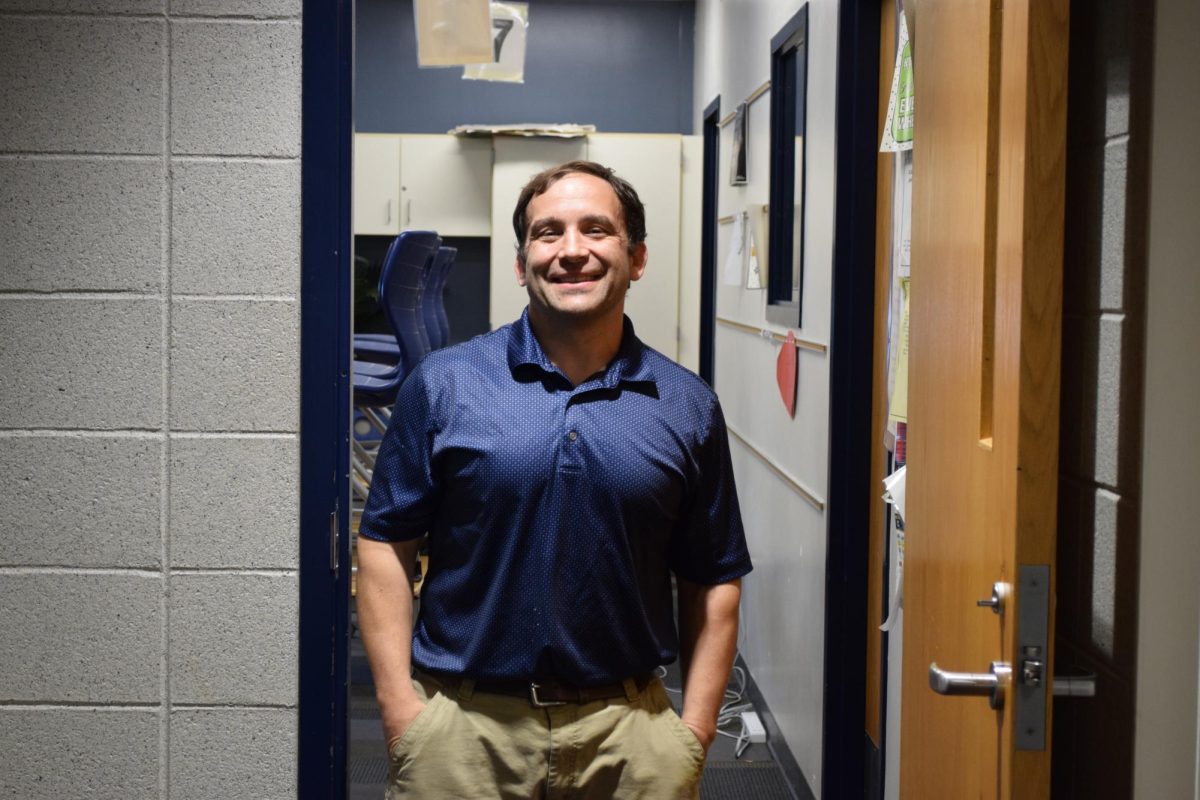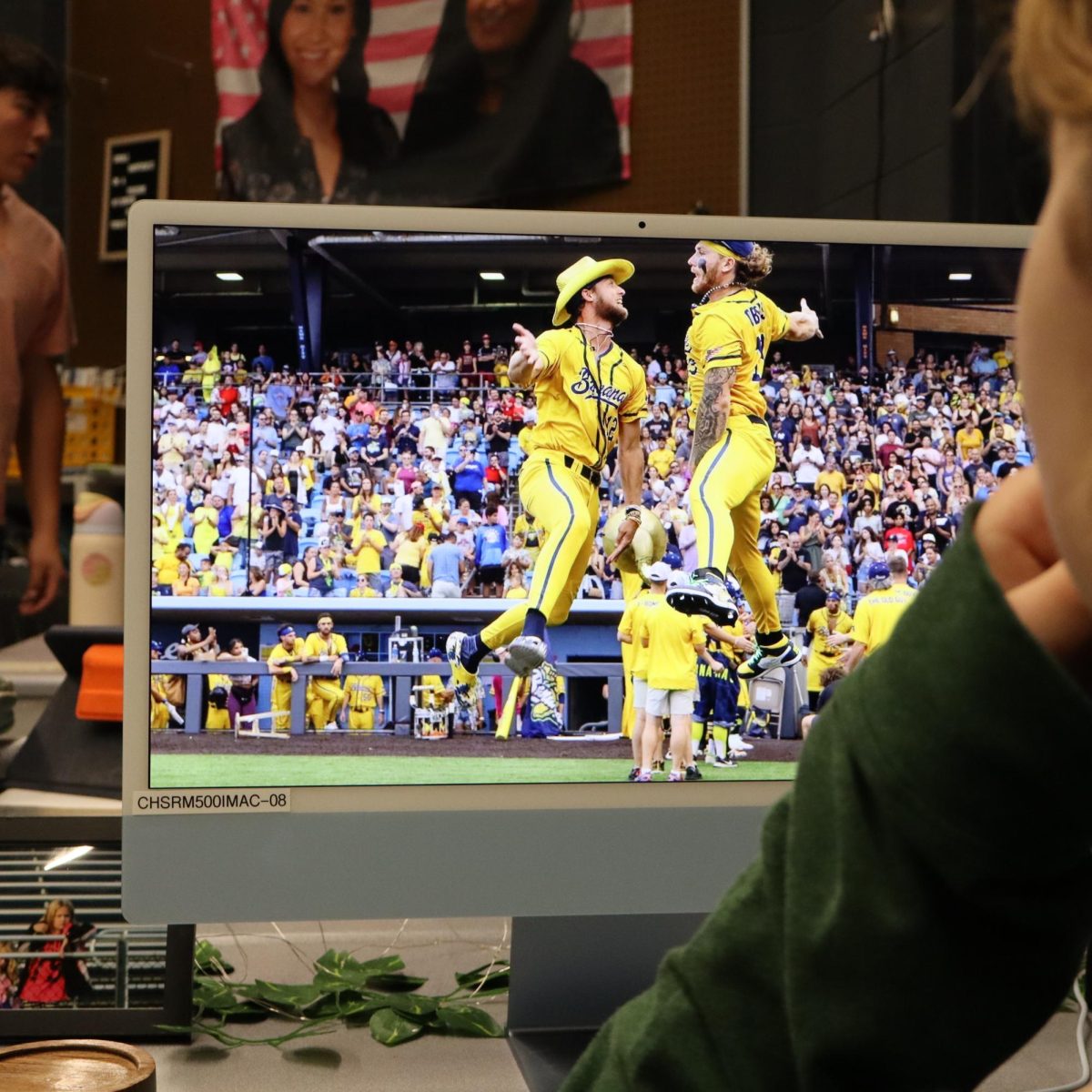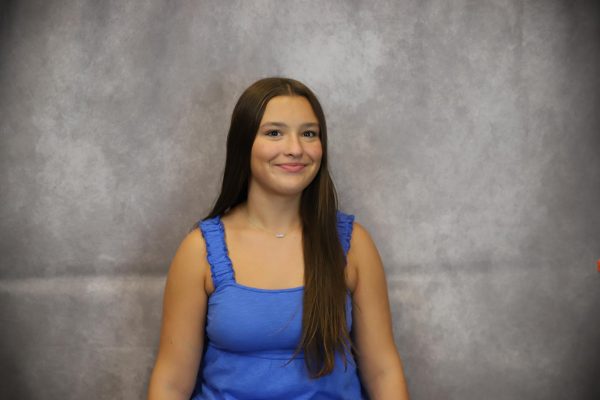After longtime math teacher and department chair Lonnie Mitchell’s retirement, there were classes left open in the math department. With Mitchell’s retirement, teachers had to shift the classes they were teaching. One shift was math teacher Adam French, going from teaching a freshman ABC Algebra I class to teaching the sophomore Honors Algebra II class. In this change of direction, French has noticed some differences, mostly in the demeanor of the students.
“The [students] in the Honors class tend to be much more directed towards accomplishing the task, rather than berating themselves for either not understanding it or blaming other things,” French said. “There’s very little looking at blame and only more looking at improvement. And a difficulty isn’t looked at in the same way, as a hurdle, but more of an opportunity to improve.”
Even though this is his first year teaching Honors, he has seen and developed different teaching styles for both classes. Students have noticed how he has asked for their opinion in the creation of the class.
“[Mr. French] is also learning how to set up an honors class. So he asked for our input on things a lot, but it’s good,” Honors Algebra two student Amy Stanavich (‘28) said.
Though his philosophy of meeting kids where they are at has not changed, French is supporting his honors students in a different way than his ABC students. With review being important to any math course, but the pace of each math class being different, review can look different between these two classes.
“In my ABC class, I spend a couple extra days reviewing factoring and other concepts. In the honors class, there’s less time reviewing old concepts, because, for whatever reason, they’re held on to more,” French said. “You know, there’s not often the statement of ‘I’ve never learned this before’. They realize that they’ve seen this material before, and now it’s time to apply it.”
Though the transition between these classes has been smooth, he has seen some differences in the class. Some of those are the way he has to use different teaching approaches to challenge his class to make them have a meaningful experience.
“I think the biggest strategy is – as far as style goes – I feel inclined more to challenge the honor students in their thinking, because we are going from base knowledge, which is essential to extrapolating on that,” French said. “ How can I make this more enriching and have you challenge your thinking versus your doing?”
Even though there are differences between these two classes, Stanavich says that there are different factors and circumstances that affect both groups of students. French has recognized that they are in an honors class and understands why people are in the different math classes.
“[French] said at the beginning of the year that a part of the reason people are in honors classes is because of their situation at home. Sometimes, the people who are in ABC classes don’t have the support system that people who are in honors have, so the teaching style and pacing is very similar. He told us that people who are in honors are usually more fortunate, which I think is true,” Stanavich said.
With these circumstances at hand, French notices that, along with the difference in demeanor, there is a bit of a difference in mindset. As the school year continues and classes start exploring new concepts, students’ mindsets can be a significant factor in how they view math problems and learn these new concepts.
“[Students in honors] Have the positive mindset of ‘I am not failing at this’.’ They see a challenge, they might not understand a concept, and they work at it,” French said. “Others in the ABC class might see a challenge and not have the tools to lift themselves up or to challenge themselves.”







